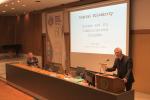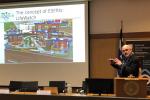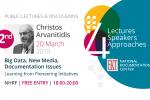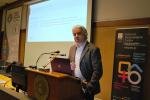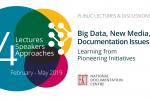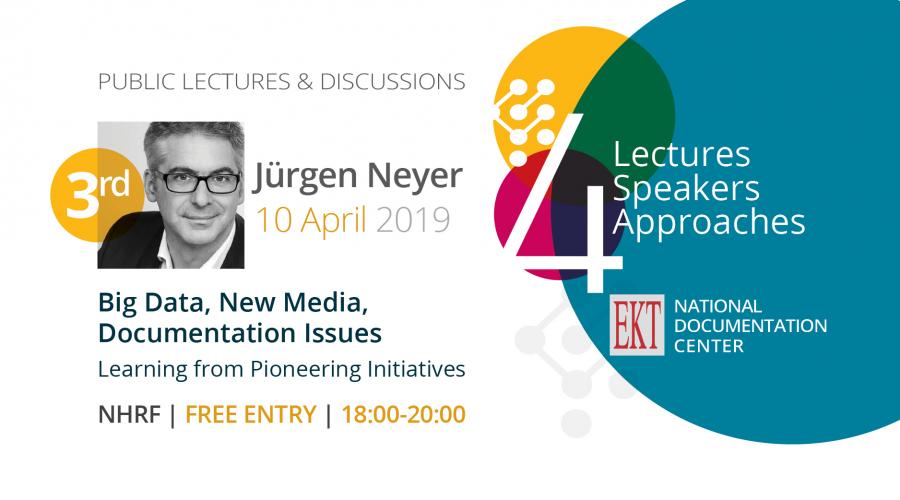
The lecture, ‘Polanyi, Solidarity and the Digital Revolution’, the 3rd in the series 'Big Data, New Media, Documentation Issues: Learning from Pioneering Initiatives' on 10 April 2019 (18:00-20.00 in the L.Zervas amphitheatre National Hellenic Research Foundation) will be given in English by Jürgen Neyer, Professor and Vice-President of International Affairs, Director of the Centre for the Internet and Human Rights (CIHR), European University Viadrina.
The digital revolution is often assumed to be the most disruptive force of modern economies since the industrial revolution. Most treatments of European liberalism refrain from using it as an explanatory variable, however. The presentation of J. Neyer, in which reference will be made to the work of the economist Karl Paul Polanyi, will draw on sociological and communication theories for developing the argument that modernity has made digital communication an increasingly dominant mode of interaction. We are observing the emergence of a new digital culture in which solidarity is restructured and decoupled from national concepts. Many citizens are reorienting their political identity away from national communities of imagination and towards self-chosen transnational communities of practice.
According to J.Neyer, this process frustrates all hopes for a resifting of loyalties from the national to the supranational layer of the EU and propels instead a process in which concepts of belonging are reoriented along functionally specific preferences. The disembedding of markets and societies in Europe and the lack of redistributive solidarity is thus not only reflecting the EU's institutional entrapment but, more fundamentally, a change in the structure of the European society.
The lecture series, 'Public Lectures-Discussions at the National Documentation Centre , Big Data, New Media, Documentation Issues: Learning from Pioneering Initiatives', which began with the successful lecture ‘Contemporary Digital History’ given by Andreas Fickers (Luxembourg Center for Contemporary and Digital History, C2DH) on 6 February aims to highlight the difficulties associated with Big Data, New Media and documentation. The 2nd lecture, ‘Big Data, new ways of ‘Big data, new media, new methods of management, analysis and interpretation: Achievements and Challenges’, was given by C. Arvanitidis.
The series will be concluded on 8 May 2019 (18.00-20.00) with a lecture in English, by William Allen, Fellow by Examination in Political and Development Studies, Madgalen College, University of Oxford, Research Officer, Centre on Migration, Policy, and Society (COMPAS), on the topic ‘The Politics of Big Data, Migration, and Mobility’.
The lectures are intended for students, researchers, scientists from different disciplines, executives from the public and private sectors and anyone concerned with the transformation of big data into valuable documentation. Each lecture is followed by discussion with the audience.
Admission is free (no required preregistration) and all attendees will receive a certificate of participation.










